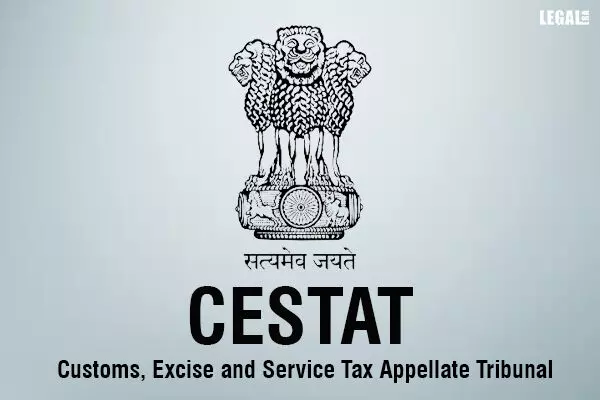- Home
- News
- Articles+
- Aerospace
- AI
- Agriculture
- Alternate Dispute Resolution
- Arbitration & Mediation
- Banking and Finance
- Bankruptcy
- Book Review
- Bribery & Corruption
- Commercial Litigation
- Competition Law
- Conference Reports
- Consumer Products
- Contract
- Corporate Governance
- Corporate Law
- Covid-19
- Cryptocurrency
- Cybersecurity
- Data Protection
- Defence
- Digital Economy
- E-commerce
- Employment Law
- Energy and Natural Resources
- Entertainment and Sports Law
- Environmental Law
- ESG
- FDI
- Food and Beverage
- Gaming
- Health Care
- IBC Diaries
- In Focus
- Inclusion & Diversity
- Insurance Law
- Intellectual Property
- International Law
- IP & Tech Era
- Know the Law
- Labour Laws
- Law & Policy and Regulation
- Litigation
- Litigation Funding
- Manufacturing
- Mergers & Acquisitions
- NFTs
- Privacy
- Private Equity
- Project Finance
- Real Estate
- Risk and Compliance
- Student Corner
- Take On Board
- Tax
- Technology Media and Telecom
- Tributes
- Viewpoint
- Zoom In
- Law Firms
- In-House
- Rankings
- E-Magazine
- Legal Era TV
- Events
- News
- Articles
- Aerospace
- AI
- Agriculture
- Alternate Dispute Resolution
- Arbitration & Mediation
- Banking and Finance
- Bankruptcy
- Book Review
- Bribery & Corruption
- Commercial Litigation
- Competition Law
- Conference Reports
- Consumer Products
- Contract
- Corporate Governance
- Corporate Law
- Covid-19
- Cryptocurrency
- Cybersecurity
- Data Protection
- Defence
- Digital Economy
- E-commerce
- Employment Law
- Energy and Natural Resources
- Entertainment and Sports Law
- Environmental Law
- ESG
- FDI
- Food and Beverage
- Gaming
- Health Care
- IBC Diaries
- In Focus
- Inclusion & Diversity
- Insurance Law
- Intellectual Property
- International Law
- IP & Tech Era
- Know the Law
- Labour Laws
- Law & Policy and Regulation
- Litigation
- Litigation Funding
- Manufacturing
- Mergers & Acquisitions
- NFTs
- Privacy
- Private Equity
- Project Finance
- Real Estate
- Risk and Compliance
- Student Corner
- Take On Board
- Tax
- Technology Media and Telecom
- Tributes
- Viewpoint
- Zoom In
- Law Firms
- In-House
- Rankings
- E-Magazine
- Legal Era TV
- Events
CESTAT: Service Tax Paid on Architect Service, Telephone Expenses for Hotel Construction are Input Services; Eligible for CENVAT Credit

CESTAT: Service Tax Paid on Architect Service, Telephone Expenses for Hotel Construction are Input Services; Eligible for CENVAT Credit
The Customs, Excise, and Service Tax Tribunal (CESTAT), Mumbai, by its single member Anil G. Shakkarwar (Technical Member) has observed that service tax paid on architect service, telephone expenses etc. for construction of hotel are input services and the same is eligible for CENVAT credit.
The appellant/assessee- M/s Asrani Inns and Resorts Private Limited provides taxable services and is registered in Mumbai. They have constructed two hotels, one in Delhi and another in Hyderabad. They had availed themselves of CENVAT credit for service tax paid on architect services, telephone expenses, security services, legal and professional services, structural consultancy services, soil investigation work, fabrication, and irrigation.
The services were utilized for the construction of hotels in Hyderabad and Delhi.
The primary issue that came up for consideration was whether, after amendments to the definition of input service under Rule 2(l) of the CENVAT Credit Rules, 2004, with effect from 1 April, 2011, the said CENVAT Credit was admissible to the appellant or not, specifically after the words "setting up" were deleted from the definition.
The lower authorities had observed that the construction of hotel premises at Hyderabad and Delhi was setting up and therefore denied CENVAT Credit part.
The assessee submitted that input services are availed by the appellant in the works contract services, project management services, and structural professional services used for the construction of a building, which are subsequently to be used for rendering the taxable output services.
The CESTAT referred the decision of coordinate bench passed in case of Lemon Tree Hotel vs. Commissioner of Central Excise Hyderabad, (2017) and held that the services, such as architect services, telephone expenses, etc., were input services, and therefore the service tax paid on the services was eligible as CENVAT credit to the appellant.


